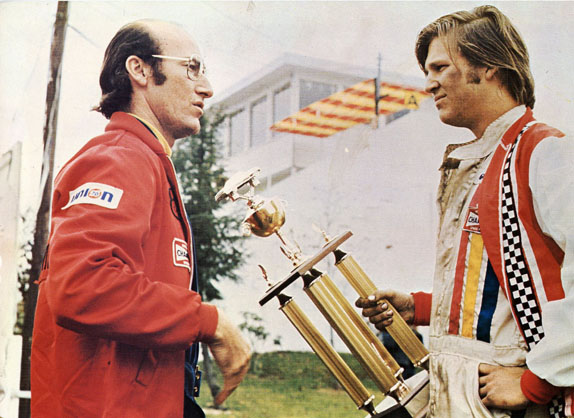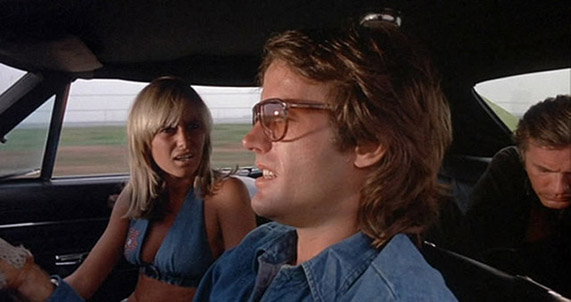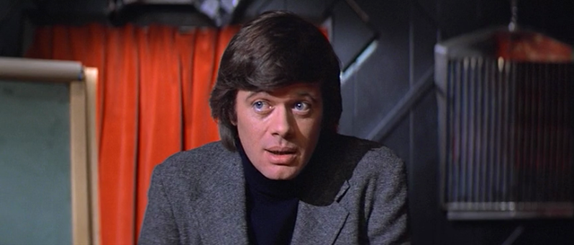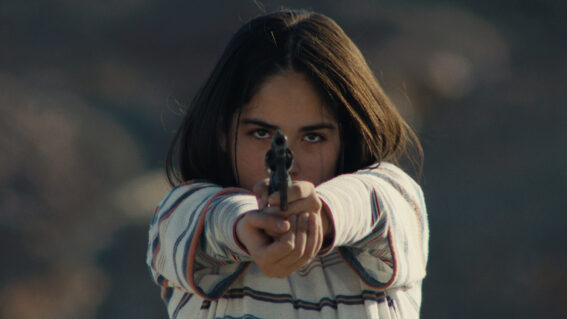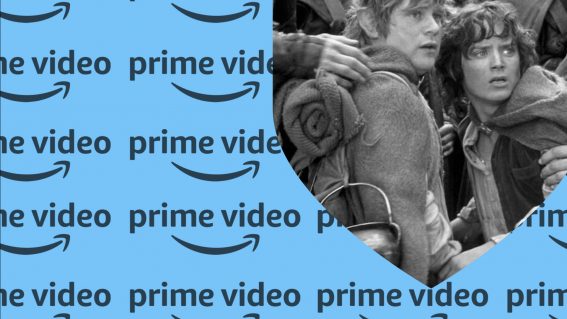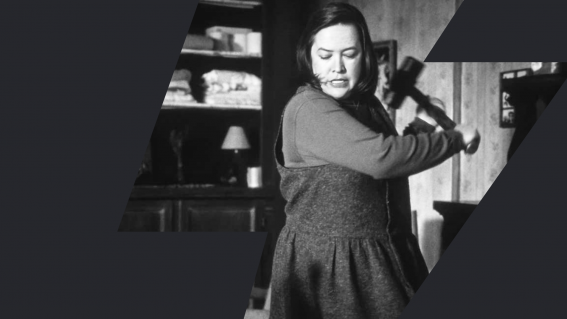Skid Marks: Cool Car Movies For Your Consideration
I feel like I’m being too unreasonably excited about Fast and Furious 6 coming out in a couple of weeks to be devoting an entire blog to “cool car movies”, but anyhow here I am, writing about some cool car movies in anticipation of Fast and Furious 6. A few things to keep in mind: […]
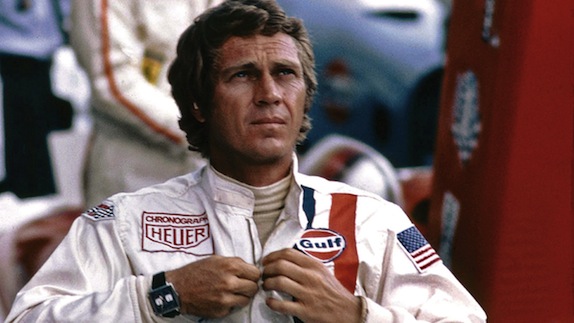
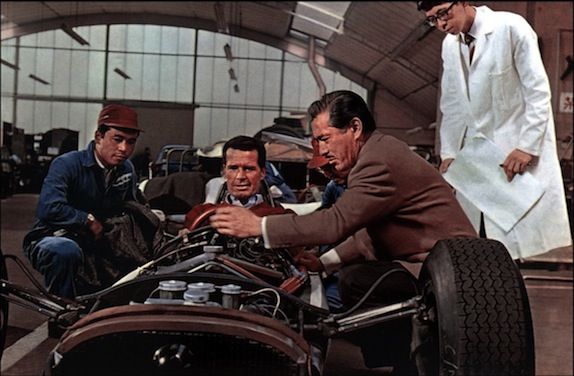
I feel like I’m being too unreasonably excited about Fast and Furious 6 coming out in a couple of weeks to be devoting an entire blog to “cool car movies”, but anyhow here I am, writing about some cool car movies in anticipation of Fast and Furious 6.
A few things to keep in mind:
(1) I am in no way a petrol/gear/car-head. I don’t know anything about cars. I drive auto.
(2) I am a fan of the first Fast and the Furious and Fast Five.
(3) Two-Lane Blacktop is one of my favourite movies, and it won’t be included here, so don’t get all “what about Two Lane Blacktop?” on me now (and The Driver too).
(4) I’m defining “car movie” in a fairly broad sense, that is to say it contains some form of car-focus, a strong element of driving, racing, chasing, anything in the spirit of burning rubber.
(5) Car movies are intrinsically cinematic. Car chases, car bodies, open roads = all visually dynamic to photograph, and occasionally, metaphorically rich (this Chevy is a coffin that enslaves my soul!)
GRAND PRIX/LE MANS
There seems to be a little rivalry between fans as to whether John Frankenheimer’s Grand Prix (1968) or Lee Katzin’s Le Mans (1971) represents “the ultimate racing flick”. I’d say if you’re into cars and racing at all, you will want to see both; they ultimately represent two sides of the same coin, and are equally worthy of the title. It really depends on your sensibility. Frankenheimer’s film, made when the guy could do no wrong (The Manchurian Candidate, Seconds), is a three-hour, shot-on-65mm behemoth which paved the way for how to rig cameras on racing cars and shoot them at real speed without any frame-rate manipulation. Soapy narrative aside – though made totally watchable by the distinguished, international cast – Grand Prix’s Formula 1 footage is heart-thumping and dazzling and would kill on the biggest screen.
 Le Mans is also ahead of its time, more for the fact that it’s one of the most experimental studio movies ever. Racing nut Steve McQueen sunk his money into the project to get it completed, and the result is uncompromisingly purist in its devotion to the race: minimal “dramatic” story, dialogue, performance. It’s all about the track. It’s also less dated.
Le Mans is also ahead of its time, more for the fact that it’s one of the most experimental studio movies ever. Racing nut Steve McQueen sunk his money into the project to get it completed, and the result is uncompromisingly purist in its devotion to the race: minimal “dramatic” story, dialogue, performance. It’s all about the track. It’s also less dated.
PIT STOP
Set in a milieu as far away from Grand Prix’s star-studded, high-livin’ Euro-glamour as possible, Jack Hill’s grungy little Pit Stop (1969) may have been cranked out on the cheap, but this pic has more guts, heart and personality than most studio productions ten times its size. Originally titled The Winner, it’s a somewhat under-recognised achievement in Hill’s career, made before his string of better-known, career-defining exploitation classics (Switchblade Sisters, The Big Doll House, Coffy).
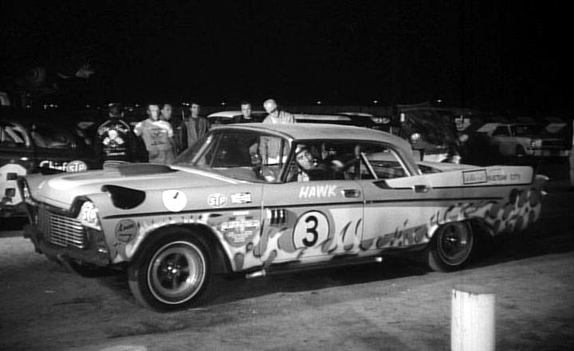
Dick Davalos (East of Eden) stars as Rick Bowman, a brooding drag-racing punk who gets bailed out of a jam by dodgy, money-hungry race sponsor Grant Willard (Brian Donlevy, in his final role) to compete in the utterly mad world of “Figure 8” racing. Shot in starkly realistic black-and-white, there’s a remorseless intensity to the fender-smashing mayhem only matched by the repellent, sociopathic behaviour of the characters. Hill regular Sid Haig (Spider Baby) is awesomely over-the-top as Hawk Sidney, Bowman’s nemesis, whose overbearing, competitive swagger hides an emotionally stunted man-child who hasn’t fully grown to manage his tantrums just yet. Superb psych-fuzz-rock soundtrack by the Daily Flash gives this tough, wiry movie the necessary amount of pedal-to-the-metal kick.
THE LAST AMERICAN HERO
Early stock car racing legend Junior Johnson – who gets a passing mention in Pit Stop – inspired this winning 1973 gem. Based on a series of Esquire essays by the then-unknown Tom Wolfe, The Last American Hero features Jeff Bridges in a plum early role as Johnson – renamed Elroy Jackson Jr. here – a moonshine runner who enters the NASCAR to provide for the family when his dad (Art Lund) goes to jail. Familiar racing movie archetypes abound, from Ed Lauter’s controlling sponsor to William Smith’s lady-killing opponent, but the film is a modest triumph, driven by its good ol’ mountain boy charm, with director Lamont Johnson balancing finely wrought character drama with thrilling, well-shot track action. A favourite of Quentin Tarantino, who recently appropriated the use of its affecting theme song, Jim Croce’s “I’ve Got a Name” in Django Unchained. Real-life Johnson served as a “technical advisor”.
DIRTY MARY CRAZY LARRY
If you need a more existentialist ‘70s car chase movie, Vanishing Point is your best bet, but for a straight-up drive-in romp, Dirty Mary, Crazy Larry (1974) can’t be beat. Peter Fonda plays a Daytona dreamer – basically a slightly older version of his anti-establishment, devil-may-care self from his Easy Rider/The Wild Angels days – who robs supermarket manager Roddy McDowell and goes on the lam with partner-in-crime Adam Roarke and ditzy hanger-on Susan George.
Vacuous plot and shrill performances (oh God Mary and Larry’s bickering!) can be forgiven when the film shuts the hell up and unleashes its array of killer car stunts, including a magnificent, eye-popping helicopter-vs-Dodge-Charger showdown towards the end. Brit director John Hough (The Legend of Hell House) stages everything with a minimum of cuts that reminds us how much more dangerous, and exciting, stunts were back in the day. A frankly nutty, and perfectly downbeat ending seals the deal. Pair this up with a Race with the Devil for a hell-and-hair-raisin’ Fonda/chase double feature.
THE GUMBALL RALLY
It’s a impossible to resist this mindless piece of pre-Cannonball Run open road anarchy from ‘76, which rarely strays from its appeal as a goofy, good-natured live-action cartoon, but actually contains a brief moment of transcendence rarely seen on film: cars speeding through an empty Times Square at dawn. The remaining 90 minutes are filled with zany, loony stunt antics, too breezily directed by veteran stuntman Chuck Bail to generate much competitive tension but choreographed with panache all the same.
The fun cast – clearly having a ball with their tongue-in-cheek parts – includes Michael Sarrazin as the mastermind behind the illegal street race, a hilarious Raul Julia as an amorous Italian “ringer” (“1st rule of Italian driving…what’s behind me is not important”), and Gary Busey, a hillbilly driver who I’d like to imagine as the parallel-reality twin of his role as Bridges’ brother in The Last American Hero. Fundamentally It’s a Mad, Mad, Mad World for gearheads, The Gumball Rally is the kind of thing you’d watch all the way through on TV even if you’ve seen it a thousand times before.
FAST COMPANY
In between two of his best horror outings, Rabid and The Brood, David Cronenberg directed this entertaining tribute to one of his other – non-icky – passions: drag-racing. There seems to be a lot of derision heaped on this film. Cronenberg’s worst until he made M. Butterfly! Pssh. Don’t believe the hate: Fast Company is great, terminally underrated. “Atypical” yes, but Cronenberg’s meticulous, attentive touch – aided by his regular, reliably proficient collaborators like art director Carol Spier and cinematographer Mark Irwin – boosts this otherwise standard, predictable B-story about race champ William Smith getting royally screwed by his scumbag manager John Saxon. If you look hard enough, there IS stuff you may want to call “Cronenberg-esque” – a threesome where motor oil is poured over a girl’s breasts could be seen as prefiguring Crash, for example – but the film can be easily enjoyed on its own populist, unpretentious terms, most likeable when it emphasises the warm, loyal camaraderie between the members of Smith’s racing crew.
Car movie favourites? Anyone?





